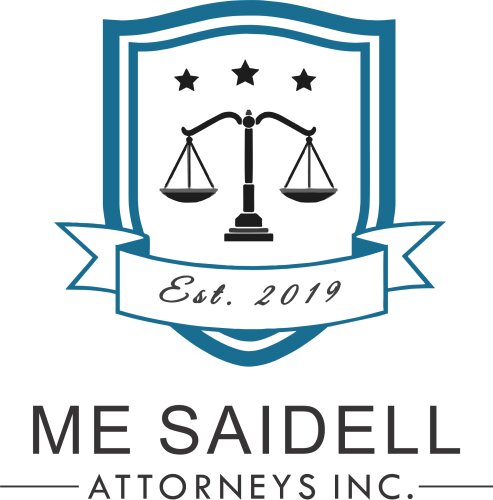Best Project Finance Lawyers in Johannesburg
Share your needs with us, get contacted by law firms.
Free. Takes 2 min.
List of the best lawyers in Johannesburg, South Africa
About Project Finance Law in Johannesburg, South Africa
Project finance in Johannesburg, South Africa, is a specialized area of law dedicated to funding large-scale infrastructure and industrial projects. Rather than relying on the creditworthiness of the project sponsors alone, project finance is structured so that the project's revenue-generating potential serves as the primary source of repayment. It is commonly used in sectors such as energy, transportation, telecommunications, and mining. Johannesburg, as the economic hub of South Africa, is at the forefront of project finance developments in the country, often serving as the headquarters for major financial institutions, legal firms, and project sponsors.
Why You May Need a Lawyer
Project finance deals are generally complex, involving multiple parties, substantial investments, and extensive regulatory requirements. You may need a lawyer in situations such as:
- Structuring intricate financing arrangements between sponsors, lenders, and government bodies
- Negotiating terms for loans, security arrangements, and equity investments
- Drafting and reviewing detailed contracts, such as construction, operation, and supply agreements
- Navigating regulatory approvals, environmental compliance, and permitting procedures
- Managing risk allocation, insurance, and performance bonds
- Resolving disputes or claims arising during project development or operation
- Addressing tax, foreign exchange, or cross-border issues related to international stakeholders
Engaging an experienced project finance lawyer helps ensure your interests are protected, all legal requirements are met, and potential risks are anticipated and managed.
Local Laws Overview
Project finance in Johannesburg is influenced by key South African legislative frameworks and regulations. Points to consider include:
- Companies Act, 2008: Sets out requirements for corporate structures, governance, and directors' duties.
- Financial Sector Regulation Act: Regulates the banking, financial, and insurance sectors essential to project finance.
- National Credit Act and Protection of Investment Act: Provide consumer protection measures and rules regarding investments and lending.
- Broad-Based Black Economic Empowerment (B-BBEE): Transaction structures often must comply with South Africa’s transformative economic policies.
- Environmental and land use laws: Public participation, environmental approvals, and land rights are critical aspects of new infrastructure projects.
- Public Finance Management Act and Municipal Finance Management Act: Govern how state and municipal bodies contract with private sponsors in public-private partnerships.
- Tax and Exchange Control regulations: Affect cross-border financing, profit remittances, and currency transfers.
Johannesburg’s legal market is well-equipped to guide clients through these frameworks, but advance planning and local expertise are essential due to the high degree of regulation and policy specificity.
Frequently Asked Questions
What is project finance and how does it differ from traditional finance?
Project finance is a method of funding large projects where repayment primarily depends on the project's future cash flows, not just the assets or credit of the sponsors. This shields sponsors from significant liability while enabling off-balance sheet financing.
Which industries in Johannesburg commonly use project finance structures?
Industries such as energy (including renewable energy), transport (roads, rail), telecommunications, water infrastructure, and mining frequently use project finance in Johannesburg and throughout South Africa.
What are the typical parties involved in a project finance transaction?
Common parties include project sponsors (developers), lenders (banks or institutional investors), government agencies, contractors, operators, and sometimes export credit agencies or multilateral development banks.
How is risk typically allocated in a project finance deal?
Risks are allocated contractually to the parties best able to manage them, such as operational, construction, environmental, and market risks. Agreements like Engineering, Procurement and Construction (EPC) contracts and Power Purchase Agreements (PPAs) set out detailed responsibilities and risk allocations.
Do I need to comply with B-BBEE requirements for project finance?
Yes, most projects, especially those involving government or parastatal partners, must demonstrate compliance with Broad-Based Black Economic Empowerment laws, which encourage transformation and local economic benefits.
What types of security are typically required by lenders?
Security often includes pledges over project assets, accounts, shares in the project company, assignment of project contracts, and guarantees.
How long does it take to close a project finance transaction in Johannesburg?
It varies depending on project complexity, regulatory approvals, and negotiation duration, but major projects typically require 6 to 18 months from inception to financial close.
Can international investors participate in project finance deals in South Africa?
Yes, but they must comply with local exchange control regulations, currency transfer approvals from the South African Reserve Bank, and relevant foreign direct investment rules.
What are the environmental considerations for project finance deals?
New projects often require environmental impact assessments, permits, and public participation processes under South African environmental laws.
How can a project finance lawyer add value to my project?
A project finance lawyer helps by structuring deals, negotiating contracts, ensuring regulatory compliance, addressing tax and B-BBEE requirements, and managing legal risks-saving time and avoiding costly problems.
Additional Resources
If you need more information or support regarding project finance in Johannesburg, consider contacting or consulting:
- National Treasury of South Africa - for public-private partnership guidance
- Department of Trade, Industry and Competition - for investment and compliance frameworks
- South African Reserve Bank - for exchange control regulations
- Commercial banks and development finance institutions, such as the Development Bank of Southern Africa (DBSA)
- Industry organizations, such as the South African Chamber of Commerce and Industry
- Legal and professional bodies like the Law Society of South Africa
Next Steps
If you are considering project finance in Johannesburg, it is in your best interest to:
- Identify the scope and sector of your project and consider the potential legal and regulatory requirements
- Engage qualified legal counsel with experience in South African project finance
- Prepare your project documentation and business case for preliminary review
- Schedule a consultation to discuss your specific legal needs, timelines, and risk factors
- Work closely with your lawyer, financiers, and other professionals to navigate the transaction from planning through to financial close and operation
Proper legal guidance can help anticipate and resolve issues early, protecting your investment and ensuring your project’s long-term success.
Lawzana helps you find the best lawyers and law firms in Johannesburg through a curated and pre-screened list of qualified legal professionals. Our platform offers rankings and detailed profiles of attorneys and law firms, allowing you to compare based on practice areas, including Project Finance, experience, and client feedback.
Each profile includes a description of the firm's areas of practice, client reviews, team members and partners, year of establishment, spoken languages, office locations, contact information, social media presence, and any published articles or resources. Most firms on our platform speak English and are experienced in both local and international legal matters.
Get a quote from top-rated law firms in Johannesburg, South Africa — quickly, securely, and without unnecessary hassle.
Disclaimer:
The information provided on this page is for general informational purposes only and does not constitute legal advice. While we strive to ensure the accuracy and relevance of the content, legal information may change over time, and interpretations of the law can vary. You should always consult with a qualified legal professional for advice specific to your situation.
We disclaim all liability for actions taken or not taken based on the content of this page. If you believe any information is incorrect or outdated, please contact us, and we will review and update it where appropriate.
















